| | Mathison Museum of Natural History |  |
|
+17Birdsage Bonnie Saarlooswolfhound widukind Joliezac spacelab Pardofelis landrover Megaptera lucky luke rogerpgvg Jill George pipsxlch Duck-Anch-Amun Kikimalou Roger 21 posters |
|
| Author | Message |
|---|
pipsxlch

Country/State : US/Florida
Age : 56
Joined : 2015-03-13
Posts : 2849
 |  Subject: Re: Mathison Museum of Natural History Subject: Re: Mathison Museum of Natural History  Thu Oct 21, 2021 4:01 am Thu Oct 21, 2021 4:01 am | |
| Wow that mantis! Stunning figure, and lovely photo! |
|
  | |
Kikimalou
Admin
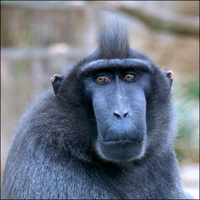
Country/State : Lille, FRANCE
Age : 60
Joined : 2010-04-01
Posts : 21169
 |  Subject: Re: Mathison Museum of Natural History Subject: Re: Mathison Museum of Natural History  Thu Oct 21, 2021 8:29 am Thu Oct 21, 2021 8:29 am | |
| This bird is awesome and my stupidity too, I missed this set when it was cheap  Your picture with red flowers is really beautiful. |
|
  | |
bmathison1972
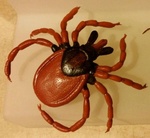
Country/State : Salt Lake City, UT
Age : 52
Joined : 2010-04-13
Posts : 6710
 |  Subject: Re: Mathison Museum of Natural History Subject: Re: Mathison Museum of Natural History  Thu Oct 21, 2021 12:46 pm Thu Oct 21, 2021 12:46 pm | |
| Species: Cricetus cricetus (Linnaeus, 1758) (European hamster; black-bellied hamster) About the Figure: Manufacturer: Kaiyodo Series: Hamster's Lunch Year of Production: 2002 Size/Scale: Bottlecap base 3.5 cm. Height (on base) 5.5 cm. Body length approximately 6.0 cm for a scale of 1:4-1:5 Frequency of species in toy/figure form (at time of posting): Unique to rare Miscellaneous Notes: I am not sure how frequently this species has been made, taking into account generic hamster figures. No assembly is required and the animal is removable from its base. About the Animal: Geographic distribution: Central Europe east to northern China and southern Russia Habitat: Steppes, grasslands, agricultural fields, parks, gardens, cemeteries Diet: Grasses, seeds, grains, fruits, legumes; opportunistically insects and other invertebrates IUCN Status (at time of posting): Critically Endangered Miscellaneous Notes: Generally a solitary animal, C. cricetus lives in a complex burrow system. Burrows can be up to 30-60 cm deep in the summer, but during the winter diapause they are usually only about 2 meters underground. The burrows have a diameter of about 8-9 cm and consist of a complex system that includes dwelling, food storage, and latrine chambers. The burrows offer protection from predators, which include birds of prey, owls, foxes, stoats, badgers, and in urban areas, cats and dogs. [You must be registered and logged in to see this image.] |
|
  | |
Caracal
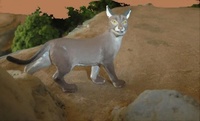
Country/State : France
Age : 65
Joined : 2018-10-24
Posts : 7252
 | |
  | |
costicuba
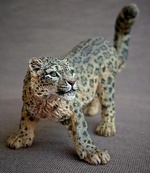
Country/State : Bulgaria
Age : 43
Joined : 2014-06-14
Posts : 4221
 |  Subject: Re: Mathison Museum of Natural History Subject: Re: Mathison Museum of Natural History  Fri Oct 22, 2021 2:11 am Fri Oct 22, 2021 2:11 am | |
| Oh, I love the photo of the giant Devil's flower mantis . Great job on this one, it is beautiful.  |
|
  | |
bmathison1972

Country/State : Salt Lake City, UT
Age : 52
Joined : 2010-04-13
Posts : 6710
 |  Subject: Re: Mathison Museum of Natural History Subject: Re: Mathison Museum of Natural History  Fri Oct 22, 2021 12:35 pm Fri Oct 22, 2021 12:35 pm | |
| Species: Blepharopsis mendica (Fabricius, 1772) (Devil's flower mantis; thistle mantis) About the Figure: Manufacturer: Play Visions Series: Exotic Insects Year of Production: 1998 Size/Scale: Total figure length 6.5 cm. Scale difficult to calculate as it appears to represent an L6 nymph (or close). Body length 6.0 which would be close to 1:1 for an adult. This figure can probably fit into the 1:1 scale, even for a nymph. Frequency of species in toy/figure form (at time of posting): Unique Miscellaneous Notes: The legs are somewhat soft compared to the body and it might not stand well over time on its own. About the Animal: Geographic distribution: North Africa, Middle East, Canary Islands Habitat: Dry forests, semi-deserts, deserts; usually among shrubby and thorny bushes Diet: Flying insects IUCN Status (at time of posting): Least Concern Miscellaneous Notes: Much like the Idolomantis diabolica seen just a few days ago, B. mendica is primarily an ambush predator of flying insects. All stages (especially the nymphs, as seen today) are well camouflaged among flowers and foliage. [You must be registered and logged in to see this image.] |
|
  | |
pipsxlch

Country/State : US/Florida
Age : 56
Joined : 2015-03-13
Posts : 2849
 |  Subject: Re: Mathison Museum of Natural History Subject: Re: Mathison Museum of Natural History  Sat Oct 23, 2021 4:41 am Sat Oct 23, 2021 4:41 am | |
| Two really cool mantis in just a few days, what are the odds? It does manage to be rather crtic in your wonderful display. |
|
  | |
Saarlooswolfhound
Moderator

Country/State : USA
Age : 28
Joined : 2012-06-16
Posts : 12056
 |  Subject: Re: Mathison Museum of Natural History Subject: Re: Mathison Museum of Natural History  Sat Oct 23, 2021 5:53 am Sat Oct 23, 2021 5:53 am | |
| I really need some mantises... manti? Whatever, a whole FLOCK of them will do!  Excellent model again. _________________ -"I loathe people who keep dogs. They are cowards who haven’t got the guts to bite people themselves."-August Strindberg (However, anyone who knows me knows I love dogs [You must be registered and logged in to see this image.] ) -“We can try to kill all that is native, string it up by its hind legs for all to see, but spirit howls and wildness endures.”-Anonymous |
|
  | |
bmathison1972

Country/State : Salt Lake City, UT
Age : 52
Joined : 2010-04-13
Posts : 6710
 |  Subject: Re: Mathison Museum of Natural History Subject: Re: Mathison Museum of Natural History  Sat Oct 23, 2021 12:39 pm Sat Oct 23, 2021 12:39 pm | |
| - pipsxlch wrote:
- Two really cool mantis in just a few days, what are the odds? It does manage to be rather crtic in your wonderful display.
the beauty of randomness! - Saarlooswolfhound wrote:
- I really need some mantises... manti? Whatever, a whole FLOCK of them will do!
 Excellent model again. Excellent model again. LOL Next up: Species: Papilio zelicaon Lucas, 1852 (anise swallowtail) About the Figure: Manufacturer: Beam Series: Imomushi Year of Production: unknown Size/Scale: Body length 7.0 cm for a scale of 1.4:1 Frequency of species in toy/figure form (at time of posting): Very rare Miscellaneous Notes: This is the fifth species of Papilio featured in the Museum; the first genus to reach this milestone. The Imomushi collection by Beam features most of the species produced by Club Earth for their Caterpillars to Go collection. Interestingly, however, they are not direct copies, as the caterpillars shared between the two collections are sculpted in different positions. There is little doubt that Club Earth served as the inspiration for this set, and in general the CE caterpillars have been copied several other times. One difference between the Beam and CE collections is that the CE figures are marked with the common English names on the underside, whereas the Imomushi figures are not. Identification of the latter was only reliably possible by comparing shapes and colors of the sculpts. About the Animal: Geographic distribution: Western North America Habitat: Open hills and mountains, fields, gardens, disturbed areas, roadsides Diet: Larvae feed on several plants in the families Apiaceae (carrot family) and Rutaceae (rues, citrus); adults take nectar from flowers IUCN Status (at time of posting): Least Concern [NatureServe status Secure] Miscellaneous Notes: Female P. zelicaon lay eggs singly on the host plants. Young caterpillars feed on leaves while older instars tend to feed on flowers and young seeds. There can be upwards of four broods a year and the butterfly can overwinter as a pupa. [You must be registered and logged in to see this image.] |
|
  | |
Caracal

Country/State : France
Age : 65
Joined : 2018-10-24
Posts : 7252
 | |
  | |
bmathison1972

Country/State : Salt Lake City, UT
Age : 52
Joined : 2010-04-13
Posts : 6710
 |  Subject: Re: Mathison Museum of Natural History Subject: Re: Mathison Museum of Natural History  Sun Oct 24, 2021 2:29 pm Sun Oct 24, 2021 2:29 pm | |
| Species: Mesocricetus auratus (Waterhouse, 1839) (golden hamster; Syrian hamster) About the Figure: Manufacturer: Kaiyodo Series: Hamster's Lunch Year of Production: 2002 Size/Scale: Bottlecap base 3.5 cm. Body length about 5.0 cm for a scale of 1:3 Frequency of species in toy/figure form (at time of posting): Uncommon [see below] Miscellaneous Notes: I don't know the frequency of how common this species has been made, taking into account generic hamster figures. I would guess most generic hamsters, especially those released with a pet or domestic theme, probably represent M. auratus since it's one of the species most commonly kept as a pet (even today's figure appears to represent a domestic morphotype). I decided to be a little more creative today, and have the figure off its base for the main image and show the figure with base as an inset. About the Animal: Geographic distribution: Aleppian Plateau in Syria, southern Turkey Habitat: Open steppes, agricultural fields Diet: Seeds, nuts, insects IUCN Status (at time of posting): Vulnerable Miscellaneous Notes: Although M. auratus is a popular pet, its domestication in the 1930s was originally for the purpose of animal testing by medical researchers. [You must be registered and logged in to see this image.] |
|
  | |
widukind
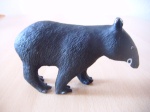
Country/State : Germany
Age : 48
Joined : 2010-12-30
Posts : 45745
 |  Subject: Re: Mathison Museum of Natural History Subject: Re: Mathison Museum of Natural History  Sun Oct 24, 2021 3:43 pm Sun Oct 24, 2021 3:43 pm | |
| |
|
  | |
Caracal

Country/State : France
Age : 65
Joined : 2018-10-24
Posts : 7252
 | |
  | |
bmathison1972

Country/State : Salt Lake City, UT
Age : 52
Joined : 2010-04-13
Posts : 6710
 |  Subject: Re: Mathison Museum of Natural History Subject: Re: Mathison Museum of Natural History  Mon Oct 25, 2021 1:30 pm Mon Oct 25, 2021 1:30 pm | |
| Species: Rhinella marina (Linnaeus, 1758) (cane toad) About the Figure: Manufacturer: Safari Ltd. Series: Venomous Creatures TOOB Year of Production: 2010 Size/Scale: Snout-to-vent length approximately 5.0 cm for a scale of 1:5-1:4.8 Frequency of species in toy/figure form (at time of posting): Unique Miscellaneous Notes: This TOOB was recently re-released (not sure when) with different paint jobs; the newer version of this toad looks dusty gray with brown highlights. From what I can tell, this original figure might be more accurate. About the Animal: Geographic distribution: Central and South America, from extreme southern Texas to the Amazon Region and Peru; introduced to the Caribbean, eastern Australia, Philippines, Papua New Guinea, Oceania, and other parts of the USA (Hawaii, Florida) Habitat: Tropical and semiarid forests Diet: Invertebrates, other amphibians, small reptiles, small birds, small mammals IUCN Status (at time of posting): Least Concern Miscellaneous Notes: The skin of R. marina is toxic. When threatened, the large parotoid glands (and other glands across its dorsum) release a thick, milky-white bufotoxin. Symptoms of bufotoxin ingestion include shaking and convulsions, loss of coordination, excessive drooling, dyspnea, vomiting, and cardiac arrhythmia. Death has been known to occur. Rhinella marina also secretes bufotenin, a chemical used as a recreational hallucinogenic drug. Bart: Dad, are you licking toads? Homer: I'm not not licking toads. [You must be registered and logged in to see this image.] |
|
  | |
widukind

Country/State : Germany
Age : 48
Joined : 2010-12-30
Posts : 45745
 |  Subject: Re: Mathison Museum of Natural History Subject: Re: Mathison Museum of Natural History  Mon Oct 25, 2021 3:00 pm Mon Oct 25, 2021 3:00 pm | |
| |
|
  | |
Jill

Country/State : USA
Age : 39
Joined : 2021-04-13
Posts : 2349
 |  Subject: Re: Mathison Museum of Natural History Subject: Re: Mathison Museum of Natural History  Mon Oct 25, 2021 3:57 pm Mon Oct 25, 2021 3:57 pm | |
| Love the hamsters, neat to see realistic models of wild ones. I also love that cane toad, and his diorama with the running water. |
|
  | |
Joliezac
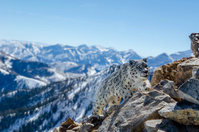
Country/State : New Jersey, USA
Age : 22
Joined : 2021-04-26
Posts : 2428
 |  Subject: Re: Mathison Museum of Natural History Subject: Re: Mathison Museum of Natural History  Mon Oct 25, 2021 5:30 pm Mon Oct 25, 2021 5:30 pm | |
| I love this model! Interesting that there is a grey version... Paint on TOOB figures seems to vary quite a bit, I have this older "orange-brown" variant and even mine looks different from the one you have
_________________
Jolie
Animal Ark Website
Animal Figure Photography Website
|
|
  | |
Saarlooswolfhound
Moderator

Country/State : USA
Age : 28
Joined : 2012-06-16
Posts : 12056
 |  Subject: Re: Mathison Museum of Natural History Subject: Re: Mathison Museum of Natural History  Mon Oct 25, 2021 5:50 pm Mon Oct 25, 2021 5:50 pm | |
| Mine is gray, but purchased many years ago so its not the latest version. Great animal again! And that hamster is nice too. _________________ -"I loathe people who keep dogs. They are cowards who haven’t got the guts to bite people themselves."-August Strindberg (However, anyone who knows me knows I love dogs [You must be registered and logged in to see this image.] ) -“We can try to kill all that is native, string it up by its hind legs for all to see, but spirit howls and wildness endures.”-Anonymous |
|
  | |
Caracal

Country/State : France
Age : 65
Joined : 2018-10-24
Posts : 7252
 | |
  | |
bmathison1972

Country/State : Salt Lake City, UT
Age : 52
Joined : 2010-04-13
Posts : 6710
 |  Subject: Re: Mathison Museum of Natural History Subject: Re: Mathison Museum of Natural History  Mon Oct 25, 2021 7:04 pm Mon Oct 25, 2021 7:04 pm | |
| - Joliezac wrote:
- I love this model! Interesting that there is a grey version... Paint on TOOB figures seems to vary quite a bit, I have this older "orange-brown" variant and even mine looks different from the one you have
Mine is a little more brown than the pic indicates; I think because my kitchen (where I photographed it) has yellow lighting. |
|
  | |
Megaptera
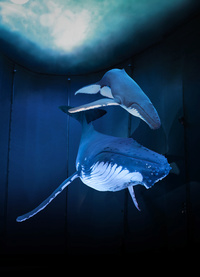
Country/State : Germany
Age : 34
Joined : 2017-11-11
Posts : 1950
 |  Subject: Re: Mathison Museum of Natural History Subject: Re: Mathison Museum of Natural History  Mon Oct 25, 2021 8:30 pm Mon Oct 25, 2021 8:30 pm | |
| - bmathison1972 wrote:
- Thanks all! The mantis is a stunning piece!
Next up:
Species: Passer montanus (Linnaeus, 1758) (Eurasian tree sparrow)
About the Figure:
Manufacturer: Kitan Club
Series: Nature Techni Colour - Nature of Japan Vol. 3
Year of Production: 2015
Size/Scale: Body length 5.4 cm for a scale of approximately 1:2.5
Frequency of species in toy/figure form (at time of posting): Rare
Miscellaneous Notes: I cannot remember if assembly is required (and it's hard to tell looking at it!). Kaiyodo also made this species for their Choco Q Animatales series and Eikoh made it for their Miniatureplanet series.
About the Animal:
Geographic distribution: Native to much of Palearctic; introduced to and established in Australia, eastern USA (St. Louis area), Sardinia, Indonesia, Philippines, and Micronesia
Habitat: Wetlands, open woodlands, fields, coasts, gardens, disturbed areas
Diet: Seeds, sometimes invertebrates; young are fed invertebrates by the parents
IUCN Status (at time of posting): Least Concern
Miscellaneous Notes: In some places, especially places where it is not native, P. montanus is considered an agricultural pest, as it damages cereal crops and eats animal feed and stored grain. In other places its considered beneficial by eating and harvesting insect garden and crop pests.
[You must be registered and logged in to see this image.] That sparrow looks wonderful. It has beautiful details and the overall shape is also realistic. |
|
  | |
bmathison1972

Country/State : Salt Lake City, UT
Age : 52
Joined : 2010-04-13
Posts : 6710
 |  Subject: Re: Mathison Museum of Natural History Subject: Re: Mathison Museum of Natural History  Tue Oct 26, 2021 1:00 pm Tue Oct 26, 2021 1:00 pm | |
| Species: Sarcophilus harrisii (Boitard, 1841) (Tasmanian devil) About the Figure: Manufacturer: Southlands Replicas Series: Australian Animals Year of Production: 2017 Size/Scale: Figure length 6.0 cm. Scale difficult to calculate, but body length (minus tail) approximately 4.7 cm for a scale of 1:14 Frequency of species in toy/figure form (at time of posting): Uncommon Miscellaneous Notes: Southlands Replicas are usually among the best representatives of their respective species. Unfortunately they are becoming harder to acquire since the line apparently folded in 2020. Other decent representatives of this species have been made by CollectA, Safari Ltd., and Science & Nature. About the Animal: Geographic distribution: Tasmania Habitat: Coastal heath, open and dry sclerophyll forests, mixed forests; dens usually located in hollow logs, caves, burrows Diet: Carrion, living mammals, reptiles, amphibians, invertebrates, and vegetation; feeding habits usually based on food availability IUCN Status (at time of posting): Endangered Miscellaneous Notes: Sarcophilus harrisii has been suffering from a clonally transmissable cancer, known as devil facial tumor disease (DFTD), which is believed to have originated in the Schwann cells of the central nervous system. While typical Tasmanian devils have 14 chromosomes, these tumor cells have ony 13, four of which are mutated. It is believed these tumor cells are transferred between animals by biting, scavenging infected carcasses, or sharing food. Clinical signs of DFTD include ulcerated nodules; the tumors spread locally and lesions on the face will invade the jaw bone which interferes with eating resulting in starvation, or the eyes which may cause blindness. Tumors can also metastasize to lymph nodes, lungs, heart, and spleen and may result in multiorgan failure. [You must be registered and logged in to see this image.] |
|
  | |
widukind

Country/State : Germany
Age : 48
Joined : 2010-12-30
Posts : 45745
 |  Subject: Re: Mathison Museum of Natural History Subject: Re: Mathison Museum of Natural History  Tue Oct 26, 2021 7:00 pm Tue Oct 26, 2021 7:00 pm | |
| One of the best figures of a tasmanian devil |
|
  | |
Joliezac

Country/State : New Jersey, USA
Age : 22
Joined : 2021-04-26
Posts : 2428
 |  Subject: Re: Mathison Museum of Natural History Subject: Re: Mathison Museum of Natural History  Tue Oct 26, 2021 7:59 pm Tue Oct 26, 2021 7:59 pm | |
| Such an amazing model! I didn't know about DFTD, poor guys 
_________________
Jolie
Animal Ark Website
Animal Figure Photography Website
|
|
  | |
Taos

Country/State : W.Sussex,United Kingdom
Age : 58
Joined : 2010-10-03
Posts : 7492
 |  Subject: Re: Mathison Museum of Natural History Subject: Re: Mathison Museum of Natural History  Tue Oct 26, 2021 8:22 pm Tue Oct 26, 2021 8:22 pm | |
| Love the Syrian hamster model. |
|
  | |
Sponsored content
 |  Subject: Re: Mathison Museum of Natural History Subject: Re: Mathison Museum of Natural History  | |
| |
|
  | |
| | Mathison Museum of Natural History |  |
|
